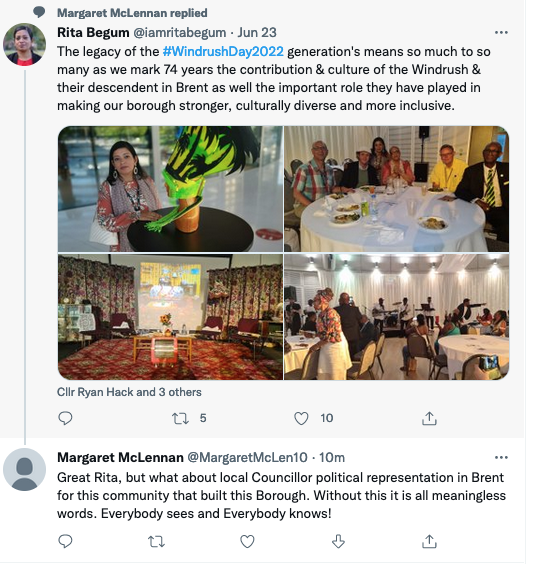It is not often I publish government press releases but this one LINK has not had much publcity. It is important in the light of the recent pollution of Wealdstone Brook and attempts to get local public health officers and their councils to sit up and take notice..
A joint opinion piece from Professor Chris Whitty, Chief Medical Officer for England, Jonson Cox, Ofwat chair and Emma Howard Boyd, Environment Agency chair
One of the greatest public health triumphs of the last 200 years was separating human faeces from drinking water. People now take this for granted but it was the basis for preventing cholera, typhoid and other bacterial and viral diarrhoeal diseases that killed millions in major epidemics. Largely achieved through remarkable feats of engineering over 2 centuries, only vaccination matches it as a public health intervention for preventing infectious diseases. When bacteria from human faeces (coliforms) are ingested, it increases the risk of significant infections including antibiotic resistant bacteria. Keeping human faeces out of water people might ingest remains a public health priority.
Tap water in the UK is safe. No-one expects river water to be of drinking standard, but where people swim or children play they should not expect significant doses of human coliforms if they ingest water. Raw sewage from storm overflows and continuous discharge of waste containing viable organisms from sewage treatment works is an increasing problem. This is a serious public health issue for government and regulators and it is clear that the water companies are not doing enough. The public health dangers are in addition to the ecological and environmental impact which forms the basis for much regulation.
Use of our rivers for recreation and exercise is something to celebrate and encourage. Children have always played in waterways and always will, irrespective of what notices are put up next to them. People of all ages use freshwater waterways such as rivers for recreation including swimming and various forms of boating. During lockdown many people took to swimming in rivers and have continued since. Our rivers, seas and waterways should therefore be free from sewage to reduce risk to the public. There are 2 major issues to tackle. Both have solutions.
The first is raw sewage discharge from the sewage network and in particular storm overflows. As the name implies this should be exceptionally rare. The engineering logic of storm overflows is that if the sewerage system is at risk of being overwhelmed by storms or atypically intense rain, sewers get too full and can back up into homes or overflow into streets. To prevent that, storm overflows act as a safety release valve, but were intended only for exceptional circumstances when the public would be unlikely to be using rivers.
After the Environment Agency required the water industry to install monitors on overflows, data shows that their use is now not exceptional. In some cases, up to 200 discharges a year are occurring. This is obviously unacceptable on public health grounds. Whilst zero discharges are technically achievable the cost of this may not be justified; to reduce the frequency down to genuine storms should however be a minimum expectation. It certainly is the expectation of the great majority of the public, including those who do not themselves use rivers recreationally as measured by polling data. Nobody wants a child to ingest human faeces.
There are solutions to getting storm overflows back to only functioning only in very high rainfall conditions. These involve better operational management, innovation and investment. This is rightly seen as the job of water companies. As a start, 4 have recently agreed to reduce their overflows to an average of no more than 20 discharges a year by 2025 – but we need to go much further and Ofwat and the Environment Agency will hold companies to account for this delivery.
The second major issue is coliforms from the continuous normal discharge from sewage works. Whilst raw sewage is not discharged into waterways from these, viable bacteria and viruses are, as part of normal operations. Eliminating discharges of coliforms from sewage works upstream of popular recreational areas will go a long way to reducing human faecal infective organisms downstream. This has been achieved for seaside beaches at coastal works by use of ultraviolet treatment. Other forms of less energy-intensive treatment are in trial or development: these options need to be pushed forward by companies with urgency.
It will inevitably require investment to boost resilience and capacity in our sewerage system. But it is not just a question of money – it needs preventive engineering, better sewer management, innovation and commitment. We welcome recent initiatives by some companies, but a lot more needs to be done. Ofwat asked all companies to produce an action plan setting out how they will rapidly improve river health. As they finalise plans, they must demonstrate a commitment to public health that matches public expectation. We have 2 stretches of river in England and Wales with bathing water status. There are over 500 in France.
We recognise management of sewers is made more difficult by plastic wet wipes flushed down toilets which congeal together with fats poured down drains to form fatbergs that block sewers and cause avoidable use of the storm overflows. Ensuring all of us put wet wipes in bins or, better, that only rapidly biodegradable wet wipes are available would immediately assist in reducing avoidable outflow problems.
However, the principal public health responsibility for ensuring human faeces and viable human faecal bacteria do not get into waterways people might use recreationally, rest squarely with the water companies and their directors. Ministers have already signalled they want significant action, requiring companies to deliver a multi-billion pound programme to tackle storm sewage discharges. Companies should take the initiative and go faster. Regulators will hold companies to account.
It is time for wastewater companies to act. It will be a matter of choice if they do not.
- Professor Chris Whitty, Chief Medical Officer for England
- Jonson Cox, Chair, Ofwat
- Emma Howard Boyd, Chair, Environment Agency























